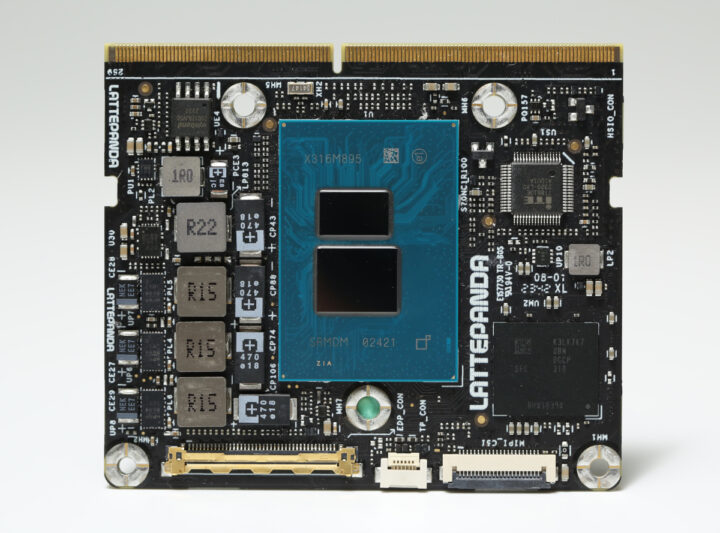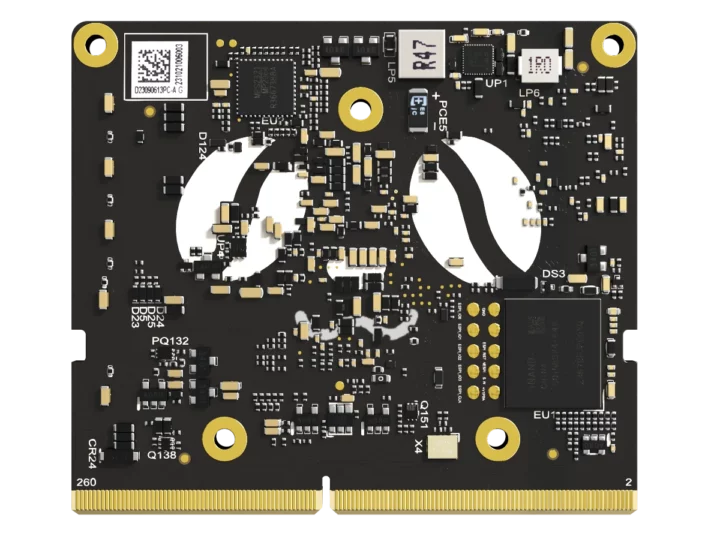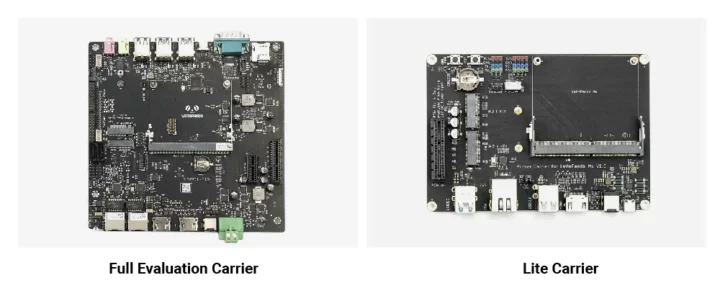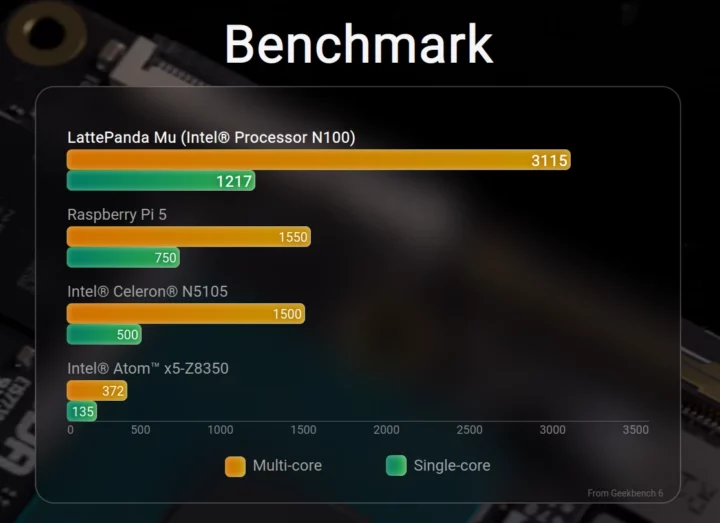The LattePanda Mu is a compute module/system-on-module based on the popular Intel Processor N100 quad-core Alder Lake-N processor that can run Windows or Linux and aims to provide a more powerful solution than the Raspberry Pi 5 and upcoming Raspberry Pi CM5 (Compute Module 5).
The LattePanda Mu does not follow any SoM standard and instead comes in a custom 69.6 x 60mm form factor using a 260-pin SO-DIMM edge connector. The module is equipped with 8GB RAM and 64GB eMMC flash by default, and the interfaces exposed through the edge connector (PCIe, USB, Ethernet, HDMI…) make it suitable for a range of applications such as IoT, robotics, digital signage, and edge computing through custom carrier boards.
LattePanda Mu specifications:
- SoC – Intel Processor N100 quad-core Alder Lake-N processor @ up to 3.4 GHz (Turbo) with 6MB cache, 24EU Intel HD graphics @ 750 MHz; TDP: 6W
- System Memory – 8GB LPDDR5-4800 with In-Band-ECC
- Storage – 64GB eMMC 5.1 flash
- 260-pin SO-DIMM edge connector
- Storage – Up to 2x SATA III 6 Gbps interfaces (multiplexed with PCIe)
- Display interfaces
- 1x eDP 1.4
- 3x HDMI 2.0/DisplayPort 1.4
- Support for three independent displays
- USB – Up to 4x USB 3.2 Gen2 (10Gbps), 8x USB 2.0 (multiplexed with PCIe)
- PCIe – Up to 9x PCIe Gen3 lanes
- 4x UART, 4x I2C
- Up to 64x GPIO
- Power Supply – 9 to 20V DC
- Dimensions – 69.6 x 60 mm
- Temperature Range – 0 to 60°C
- Relative Humidity – 0 to 80%
LattePanda provides Windows 10/11 drivers for Mu modules and recommends using Linux distributions with kernel 5.18 or greater (Linux 6.1+ recommended). Since the module in itself is not overly useful, the company also designed the “Lite” and “Full function” carrier boards to let the user quickly evaluate the module. The BIOS, drivers, mechanical design files, and carrier boards’ KiCAD hardware design files can also be found on GitHub. The carrier boards’ design files can be used as a starting point for customers designing their carrier boards for NAS, cluster, router, or AI (with discrete GPU) solutions.
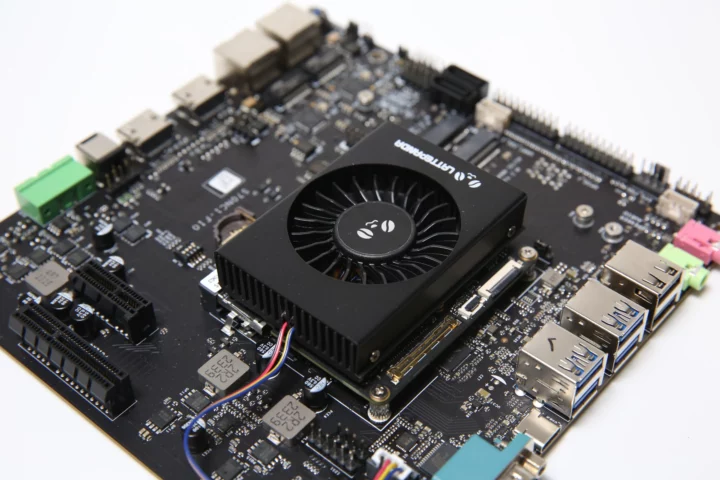
This type of compute module is not exactly new as we regularly write about system-on-modules (SoM) several times a month, and we previously covered the TQ-Embedded TQMxE41S system-on-module offered with similar Alder Lake-N processors and compliant with the SMARC 2.1 standard. What’s different is that the LattePanda Mu should be more accessible in a way similar to getting a Raspberry Pi Compute Module 4 (provided they are in stock), while most embedded systems companies will focus on B2B with some exceptions such as ADLINK’s i-Pi development kits that can be purchased with anyone having a credit card or PayPal account.
DFRobot promotes the board as an alternative to Raspberry Pi 5 solutions with much faster single-core and multi-core performance in benchmarks such as Geekbench 6, but it will rather be an alternative to the Raspberry Pi CM5 once it is released later this year.
LattePanda Mu SoM will eventually sell for $139, but the company is offering the CPU module for $99 for the first week. But most people won’t simply buy the module only, and the LattePanda Mu Kit with the LattePanda Mu, LattePanda Mu Lite Carrier, and an active cooler will be sold for $149 to the first 100 users, after which, the regular price will be $190. That mainly makes it interesting to people planning to use the SoM’s features in their specific project, as Intel N100 mini PCs can be had for a similar price. More details may be found on the product page.

Jean-Luc started CNX Software in 2010 as a part-time endeavor, before quitting his job as a software engineering manager, and starting to write daily news, and reviews full time later in 2011.
Support CNX Software! Donate via cryptocurrencies, become a Patron on Patreon, or purchase goods on Amazon or Aliexpress


